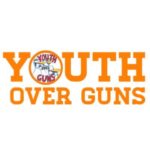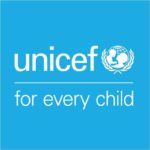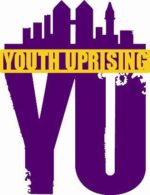Advocacy/Policy
The Restorative Justice Collaborative of Utah has created a Restorative Justice Resource Guide for organizations to utilize while advancing restorative practices. The resource guide, also available as a PDF, offers books, theories, articles, videos, and other resources to support practitioners who engage in RJ.
Children’s Funding Project offers communities who are implementing new voter-approved funding a toolkit for designing, operating, and evaluating programs. From creating a timeline to telling your programmatic-outcome story, this toolkit provides step-by-step guidance.
PFLAG has curated resources for those new to the conversation surrounding gender identity. These resources include national publications, online academies, books, films, and special topics.
To prepare and support communities as they participate in Trans Awareness Month (November), Advocates for Youth has prepared a toolkit with resources for immediate implementation. Resources include book lists, infographics, and video clips.
The Southern Poverty Law Center (SPLC) engages audiences in a community education program, Learning for Justice. This resource provides educators with free resources to encourage youth civic participation as well as to learn honest history, promote servant leadership, and move toward a racially and socially just society.
This collection of resources has been curated by SPLC to offer lessons for elementary and middle school classrooms that focus on elections and voting.
The Annie E. Casey Foundation offers its latest installment to provide information on kinship diversion policies through this analysis report of state-by-state surveys of kinship care policies. Findings are based on 33 state respondents who have policies allowing kinship diversion. The Annie E. Casey Foundation defines kinship diversion as placement of a child with relatives or close family friends as an alternative to a child welfare agency taking custody and placing the child in formal foster care.
Sponsored in partnership with The Myron and Alayne Meilman Family Foundation, the Museum of Jewish Heritage: A Living Memorial to the Holocaust offers 11 free lesson plans for educators to use when discussing the Holocaust, social justice, and advocacy. This museum curriculum collection also offers a guide for educators using the resource.
The development of this resource was further supported by the New York City Department of Education.
Climate change is an important learning and advocacy initiative for today’s youth. This free PBL curriculum resource is an engaging and interactive curriculum tailored for grades K-12, focusing on climate change education.
In this engaging and influential program, youth will:
Learn about global climate and environmental problems, including the plastic trash crisis, pollution and its effects, the shortage of fresh water, and other health threats.
Discover how these problems affect their communities.
Explore how their personal choices affect the environment.
Create a proposal to solve a problem related to climate change or the environment in their community.
Present the proposal to experts.
Present the final version of their proposal to their peers at a culminating event
Our mission is to build youth power in marginalized communities throughout the nation and encourage legislative advocacy to prevent gun violence, while shifting public discourse towards an evidentiary approach to keeping schools and communities safe.
Civic engagement involves “working to make a difference in the civic life of one’s community and developing the combination of knowledge, skills, values and motivation to make that difference. It means promoting the quality of life in a community, through both political and non-political processes.” Civic engagement includes both paid and unpaid forms of political activism, environmentalism, and community and national service. Volunteering, national service, and service-learning are all forms of civic engagement.
According to the 2006 National Civic and Political Health Survey, seven percent of 15- to 25-year-old Americans participated in 10 or more community engagement or political activities within the previous year.3 When compared to their peers who report no civic engagement activities, this group was more likely to be African-American, urban, attend church regularly, from a family with parents who volunteer, a current student (in college or high school), and from college-educated home.
AmeriCorps (formerly the Corporation for National and Community Service, or CNCS) is a federal agency that sends people power and funding to communities across the country for causes such as disaster response, the opioid crisis, and education.
Participation in civic engagement activities can help youth become better informed about current events. For example, according to the 2006 National Civic and Political Health Survey, approximately a quarter of youth who had not participated in civic engagement activities within the last year did not answer any questions regarding current politics correctly.
Click on the link to learn more.
Digital civic engagement by young people
Rapid analysis | An overview of the latest research with a critical focus on the enablers, constraints and nature of youth civic engagement in the digital space.
This analysis presents an overview of relevant research across the topic of digital civic engagement by young people by asking about the nature and dimensions of engagement, enablers and constraints of digital civic engagement, as well examining some key considerations when supporting young people’s engagement.
YU LEAD (Leadership Excellence and Development) is a one-year leadership program that prepares a team of YU members who have overcome significant challenges to become community leaders by turning their passion for community advocacy into a career. By combining intensive leadership trainings and community enhancing group projects, YU LEAD prepares youth to be change agents, while ensuring that they are fully prepared for college or full-time work.
YU LEAD represents the youth perspectives in program development and facilitation, opportunities to organize youth events, and community engagement strategies. Participants also receive extensive training to carry the voice of youth in public policy and planning processes.









